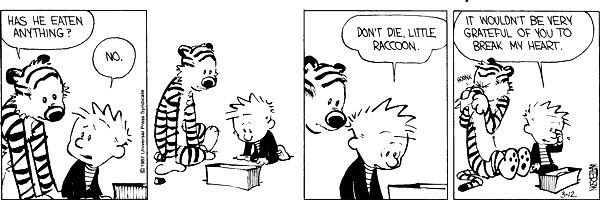Women are strong, intelligent, beautiful, amazing creatures, which makes it all the more frustrating when they won’t shut up long enough to be admired.
I understand that a coffee shop is a well known place to air ones grievances, I’ve even written
another blog about it, but there really needs to be a limit. While attempting to get some work done at
The Victoria earlier this week I took the only seat available, directly behind two girls talking to each other about their lives, and attempted to write.
Over the next several minutes I was constantly interrupted by their every increasingly vapid conversation. It bounced from why one of their boyfriends was stunted emotionally because he didn't hug his father on a regular basis, that one of their sisters just doesn’t understand the value of exfoliating her feet, that one of them has reached a personal milestone and now felt confident in themselves, as long as they kept seeing their therapist once a week and continued to journal, that one of them had been struggling with depression, but a crush on Jim from the TV show The Office was helping her get through it, and that they were both a “rollercoaster of emotion because of their mothers”.
Throughout the entire conversation they became louder and more piercing. Eventually spiraled into such a high-pitch frenzy that I can only explain it as two Pekinese fighting over ownership of a heavily amplified dog whistle. Needless to say, I did not get much writing done and ended up heading home to attempt to write with the usual distractions of home.
The problem was that once all I could think about was how much I had been annoyed by the mindless chittering that had driven me back home. What I decided to do was sit down and try to become a female conversational apologist. This I thought, would either help me find peace with their process or turn me into a celibate monk.
Not really knowing where to start, I contemplated how men converse. We talk just enough to know what the other is thinking. Generalities, direction, examples and specifics about things that are only loosely relevant to the conversation at hand. In all reality, we talk less because we would rather know that there is someone out there like us, who shares the same tastes as us, with just enough conflict for us to continue to believe that we are different enough to matter. Our relationships are deep within our minds, but rarely expressed because allowing them to surface would smother their meaning. Male friendship is based on things that don’t need to be said.
Conversely, female relationships are built on the opposite: reassurance that they are not alone, community, and strength through vulnerability. What those two women behind me were saying was that the challenges in their lives were just obstacles that, with a little support and shared strength, they will overcome.
After reasoning it out, I thought about how both sides always ridicule the other on how shallow their methods seem to be. Women speak on men’s relationships as things built on grunts, technical data sharing, and physical confrontations. Men generally consider women’s interactions as insipid, pointless meanderings, with sporadic emotional outbursts. And while both sides seem to deal with their emotional wellbeing in different ways, they have the same final outcome.
For myself, I’m glad that I’m male. Not because I think that my way of communicating is superior, more efficient, or even just better. No, it’s because when I need to think, I can sit at the coffee shop, by myself, and find balance with my mind and life. And I can do all of that without annoying the people sitting around me.

















